Your cart is currently empty!
18 Simple Tips to Eat Healthy on a (Student) Budget
As a dietetic student, it’s important for me to eat healthy, but with a tight budget, it isn’t always easy. It’s my last year of university and after 5 years of studying, you better believe I’ve developed a few habits to save money. Hopefully some of my tips can help you as well! Before Shopping:…
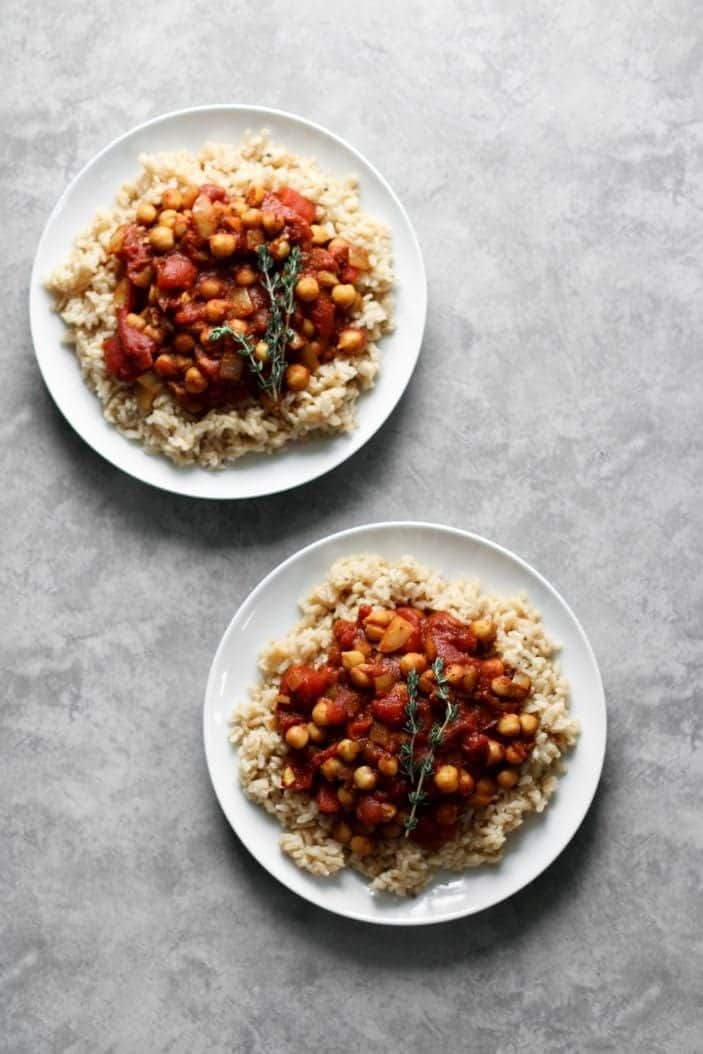

As a dietetic student, it’s important for me to eat healthy, but with a tight budget, it isn’t always easy. It’s my last year of university and after 5 years of studying, you better believe I’ve developed a few habits to save money. Hopefully some of my tips can help you as well!
Before Shopping:
Plan ahead
Every week, I take one day (usually Saturday mornings) to plan my meals for the next week. I don’t like planning what I’ll eat each day of the week, I find that a little too limiting for me. What I do instead, is I plan a few recipes for the week and eat them whenever I feel like it. Every week, I plan to try at least one new recipe, either from one of my cookbooks or one that I pinned on Pinterest. Then, for the rest of the week, I plan on making my own recipes or a simple non-recipe meal, such as a cheese omelet with toasts, a salad, simple avocado toasts, etc. Planning for those non-recipe meals ensures that I buy only what I need. Planning takes only 15 minutes of your week, yet makes a big difference in your budget!
Plan recipes based on what you have in the fridge
Use up what you have before buying more! I can’t stress this enough. If you don’t use up what you have before buying anything new, you’ll get a crowded fridge and you’ll forget what you have in the back, which will lead to waste. A lot of waste! Clean out your fridge before doing the groceries and figure out creative ways to use up leftover ingredients that have been sitting in your fridge for a while.
Make a list and stick to it!
After planning the recipes you’ll make for the week, make a list of the ingredients needed as well as the ingredients you use on a regular basis (bananas, milk, bread, etc.), then stick to that list! Don’t buy anything in the moment (do yourself a favor and don’t go to the grocery store hungry). It’s as simple as that.
Look for sales, but don’t get fooled
Shopping around and finding the best prices is a great way to save money. Look at flyers for good deals at different grocery stores nearby. However, don’t buy something just because it’s on sale or you might end up buying stuff you won’t end up using.
At the Grocery Store:
Buy in bulk when possible
I love to buy things that don’t go bad in large quantities. This way, I can save money and I won’t waste food. There are things I won’t buy in bulk, like yogurt or salads because I can’t freeze them and we can’t finish them before they go bad. There’s no point in buying in bulk if you’ll end up throwing half of it away. I will however, buy frozen fruits and veggies, fish, poultry, grains, nuts and seeds, dates, pasta or anything that can either go in the freezer or stay in the pantry for a couple of months. For example, I found that I can buy a very large container of spinach at Costco for the same price (if not less) than a small container at the grocery store. Since we’re only two and we can only eat a limited amount of spinach before it goes bad, I freeze half of it in a large freezer bag and use them in smoothies and soups.
Focus on whole food, not organic
Buying organic produce, crackers, bread, cheese and milk may seem tempting, but if you’re a student with a limited budget, focus on buying whole foods instead of organic. Buying fruits and vegetables can already be a challenge. If you want to avoid pesticides, the best way to do so is to make your own garden during the summer, then freeze your produce to enjoy all winter. I always look for sales and when organic products are on sale for the same price as regular products, then I’ll buy them. My priority is eating a healthy, whole food diet.
Try other brands
Don’t be fussy. Look for the best prices, without looking at the brand name. Don’t be scared of trying a new loaf of bread or a different brand of almond milk. If it’s on sale, take the cheapest one!
Buy the “bad quality” products
Some grocery stores will reduce the prices of products that are close to the expiration date. I often find very cheap bananas that are “too ripe”, greens that are a few days old or bread that will expire in a few days. When that happens, I take advantage of the lower prices and buy a large quantity, then either use them in the next few days or put them in the freezer!
Buy seasonal produce
Take advantage of the lower prices and freeze a bunch of fruits and veggies in season to enjoy them all year! During summer, go pick your own strawberries, blueberries and raspberries, then freeze a few big bags to enjoy all winter in smoothies! During Fall, go apple picking or take advantage of cheap squashes. Buying produce in season is one of the easiest ways to save money.
Look for frozen or canned options
When fruits and vegetables aren’t in season, then look for frozen or canned options. Frozen is a very healthy alternative to fresh produce since it retains most of the vitamins and minerals. Look for bags that don’t contain added salt or preservatives. As for canned food, you have to be a little careful. Look for options that don’t have any added salt or fat. Good options include canned beans, canned tomatoes, canned fruit in water, canned tuna in water, etc.
Rely on cheap protein
I hardly ever eat meat, which has its advantages. Beans, lentils and tofu are cheap! Even adding them to your diet a few times a week can have benefits on your budget as well as your health.
Rely on cheap grains
Use rice, oats, couscous, whole grain flours and other cheap grains to compliment your meals. Try cooking some stove-top oatmeal for breakfast, eating rice with vegetarian curries, bringing a quinoa or couscous salad to work. They’re all good sources of fiber, which will fill you up for little money.
After Shopping:
Meal Prep
I always plan my meals and do the groceries on Saturday, then I do my meal prep on Sundays for the upcoming week. Here’s what I usually prepare:
- Breakfast: Breakfast doesn’t have to be complicated. For example, I alternate between Sunflower seed butter toasts with almond or soy milk, My Classic Peanut Butter Banana Oatmeal, my 5-Minute Raw Granola Power Bowl or a simple variation of my classic oatmeal. All I have to do is make sure I have bread, bananas, nut butter, milk and oats on hand. If you’re short on time in the morning, try making overnight oats or freeze smoothie ingredients in individual bags for quick breakfasts.
- Lunch: For lunch, I need something that I can bring to work. I like making a batch of hummus and crackers and cut up some vegetables for a snack-like lunch. I also use the hummus to make simple hummus, avocado and cheese sandwiches. If I don’t make hummus, I like making a mashed chickpea mixture (such as this one) to put in sandwiches or I like making a quinoa salad like my Greek Quinoa and Chickpea Salad. Other lunches include leftovers that I heat up in a microwave at work or nut butter sandwiches.
- Supper: This is when I get a little more creative. Every Sunday, I try at least one or two new recipes that we’ll eat for supper throughout the week. This usually includes one recipe from a cookbook or a favorite blog, then one or more recipes that I’m testing for the blog. Those recipes make up for most of our suppers during the week, but on the remaining one or two nights, I make simple meals, such as a vegetable and cheese omelet, my Everyday Salad with Tahini Dressing & Chickpea Croutons, avocado toasts or buddah bowls using my leftover vegetables before they go bad. I also ALWAYS have a batch of veggie burgers in the freezer, like my Crispy Chickpea Burger. I make a batch every 2-3 months for easy weeknight dinners.
- Snacks: I often make a batch of homemade granola bars, energy bites or a healthy dessert to enjoy throughout the week. I sometimes try recipes from cookbooks, but I often make my own, like my Hearty Oatmeal Breakfast Cookies or my Dreamy Coconut Macaroon Truffles.
Meal prep, but not too much!
I learned this the hard way. Don’t be overly ambitious with your meal prep or you’ll end up throwing stuff away by the end of the week. To prevent throwing out prepared food, eat your prepared meals first, then make simple dinners (omelets, avocado toasts, etc.) the rest of the week when everything else is gone. Don’t make something new before you’re done with the old!
Use your freezer
When items that I use regularly are on sale, I like to buy extra and keep them in the freezer. That way, I can really stock up when there’s a good sale, without worrying about waste. Not only does it prevent waste, but it also lets you buy in bulk which will save you money. Think bread, vegetables, fruits, poultry, fish…
Use up what’s in the freezer
Do you know what you have in the back of your freezer? If you don’t, it might be a good idea to clean-out of your freezer and maybe start using up what you have before adding anything new. I rely on my freezer, but I never over pack it to the point where I don’t know what’s in there. I also like to use what’s in there in a matter of weeks or months. Once every few weeks, I skip the meal prep and I use up what’s in the freezer for the week. That way, I don’t lose what’s in there and I save money on groceries.
Make homemade staples
I’m not saying that you have to make everything from scratch, but try comparing the prices. For example, I eat A LOT of nut butter and since we have a peanut allergy in the house, I decided to start making my own batch of sunflower seed butter every two weeks. Trust me, it saves a lot of money in the long run! This also applies to granola bars. Sugar-free granola bars are crazy expensive, so I prefer making my own, which takes about 20 minutes. Just try making energy bites and granola bars on the weekend and store them in the freezer for easy snacks throughout the week. My favorites are my No-Bake Chewy Granola Bars and my Chocolate Pretzel Quinoa Bars.
Recipes that I make from scratch:
- Hummus
- Granola bars
- Sunflower seed butter (or nut butter)
- Salad dressings
- Veggie burgers
Don’t get fancy
All of my meals aren’t pretty to look at… Heck, most of them aren’t! My oatmeal in the morning doesn’t have any other toppings other than an ugly mashed banana and nut butter. My smoothies aren’t placed in a bowl and topped with expensive ingredients. This is real life, I don’t have the time or money to top all of my breakfasts with organic “superfoods” and edible flowers and that’s okay.
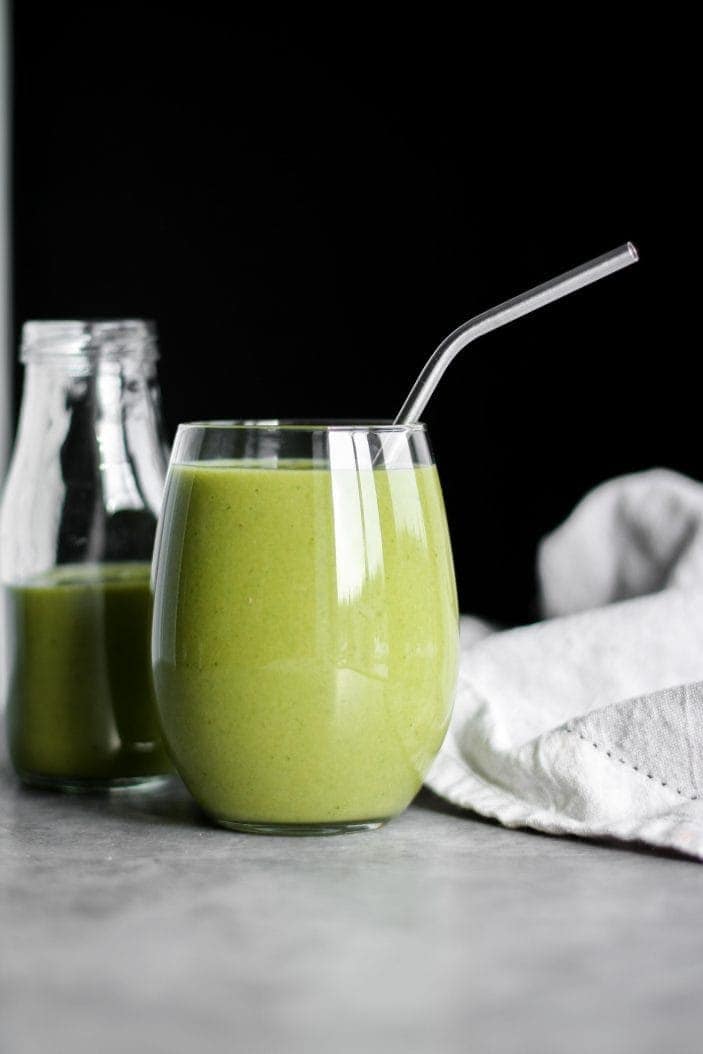
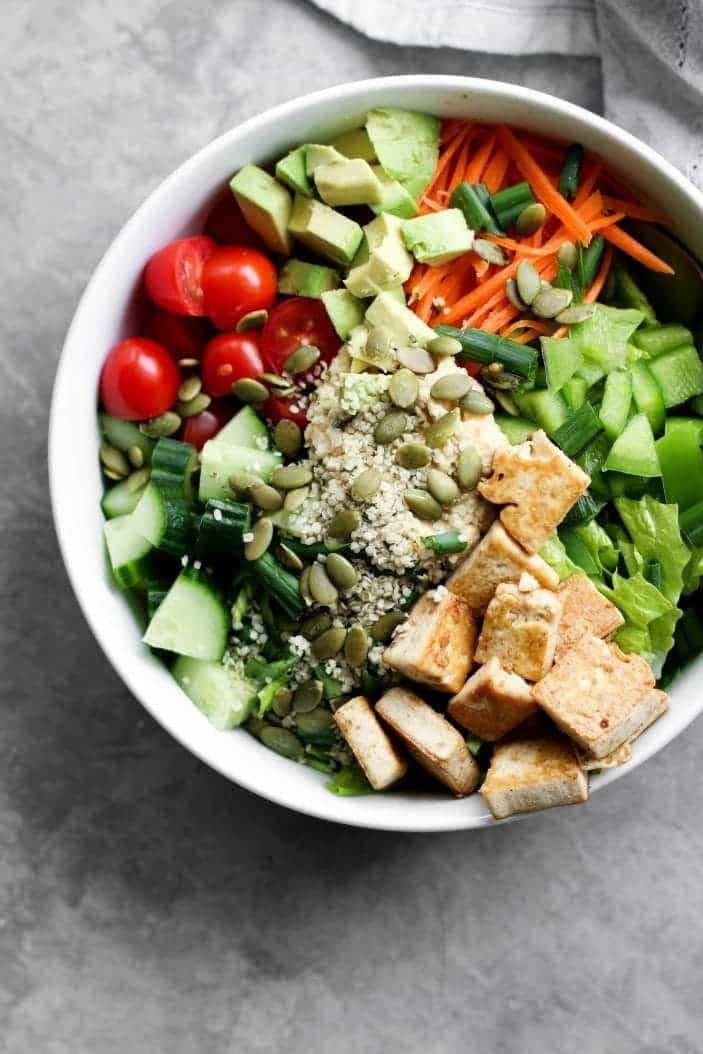
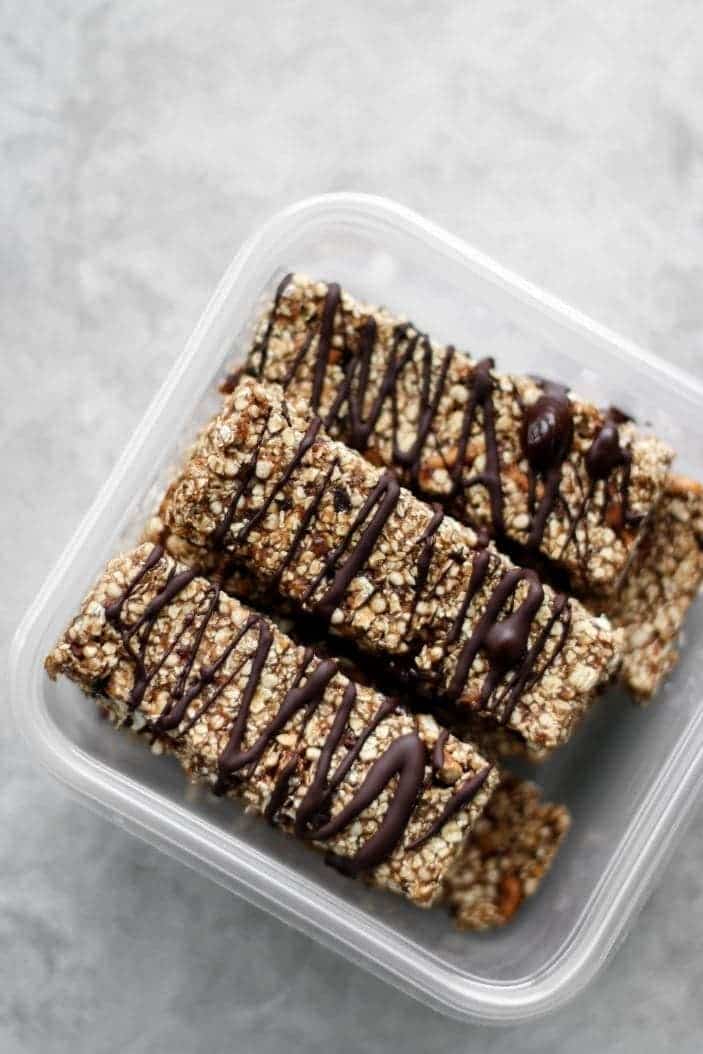
What are your money-saving tips? Share them in the comments!

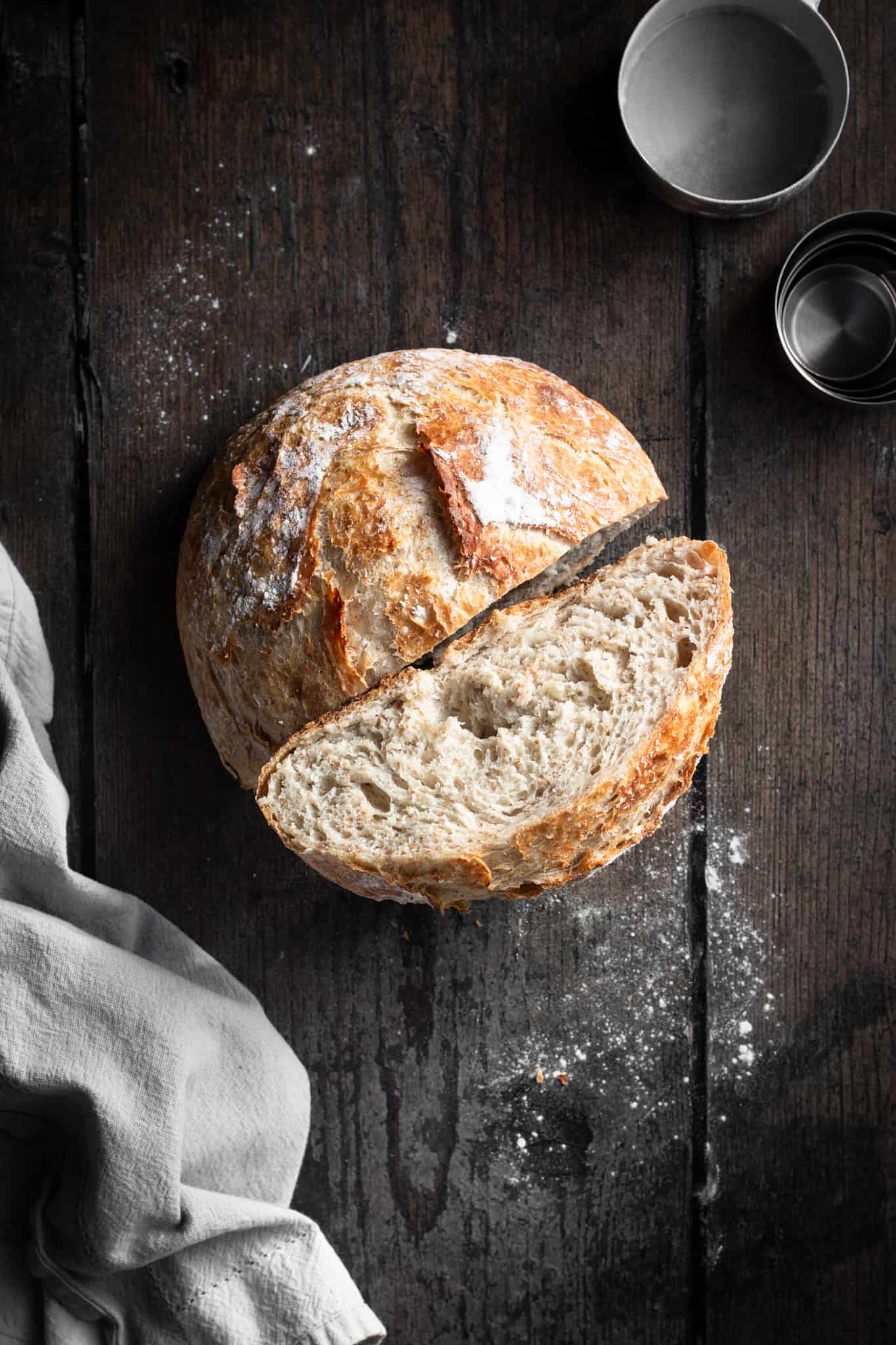
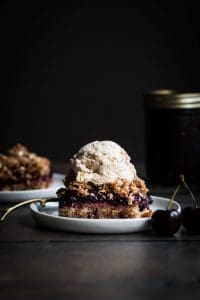

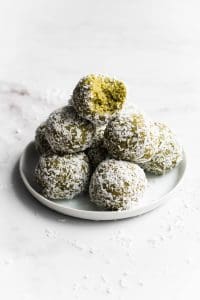

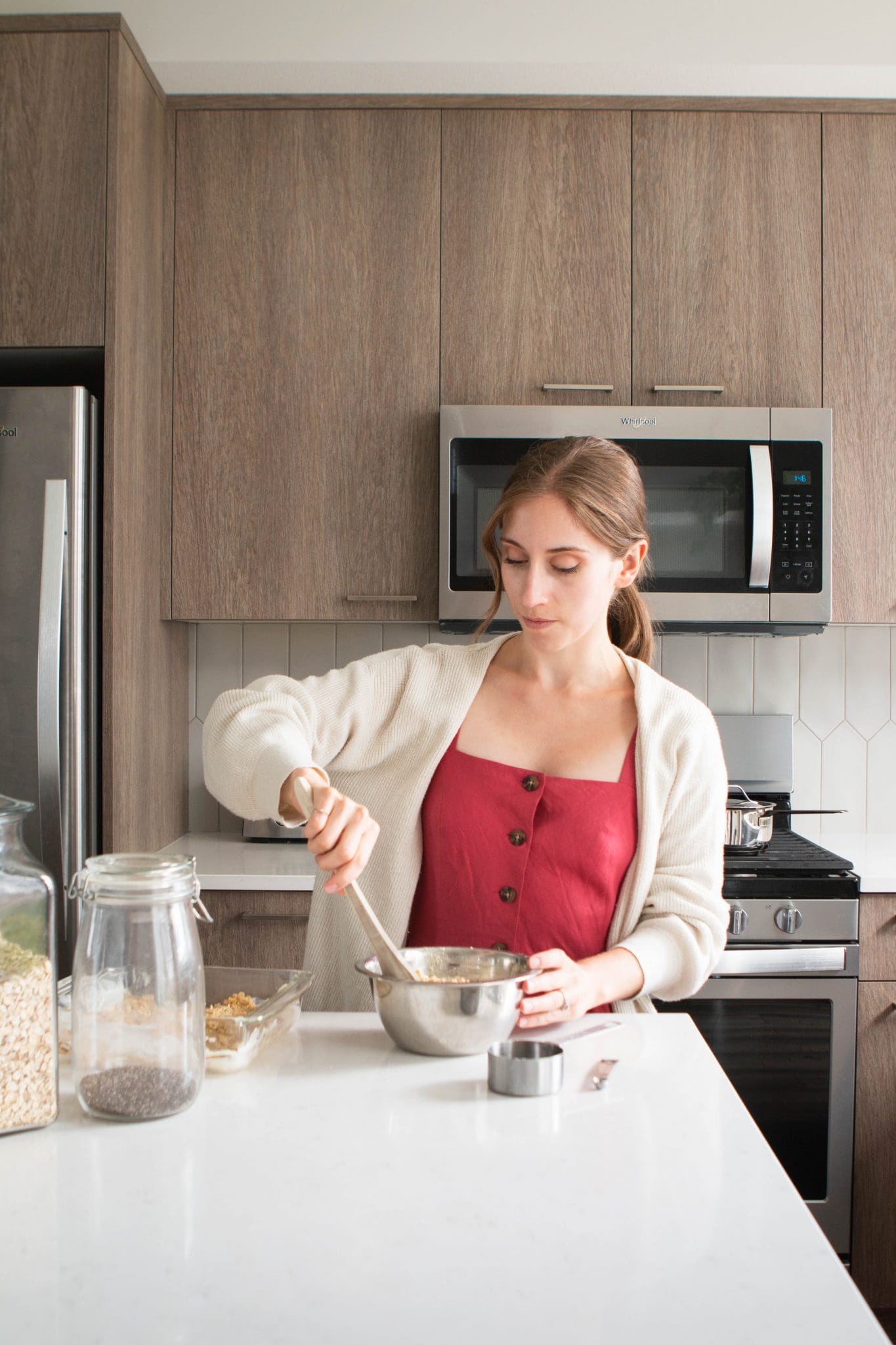
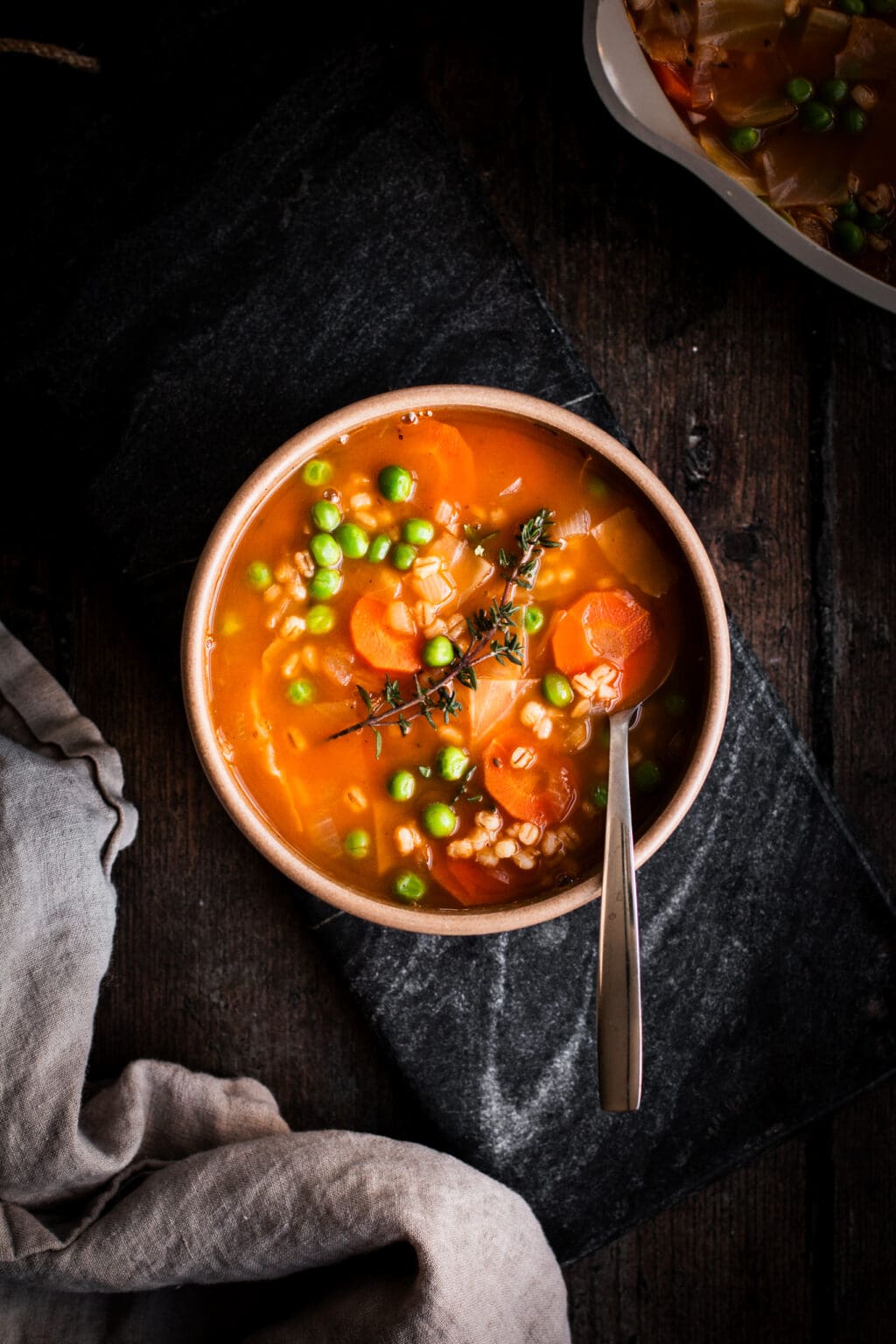
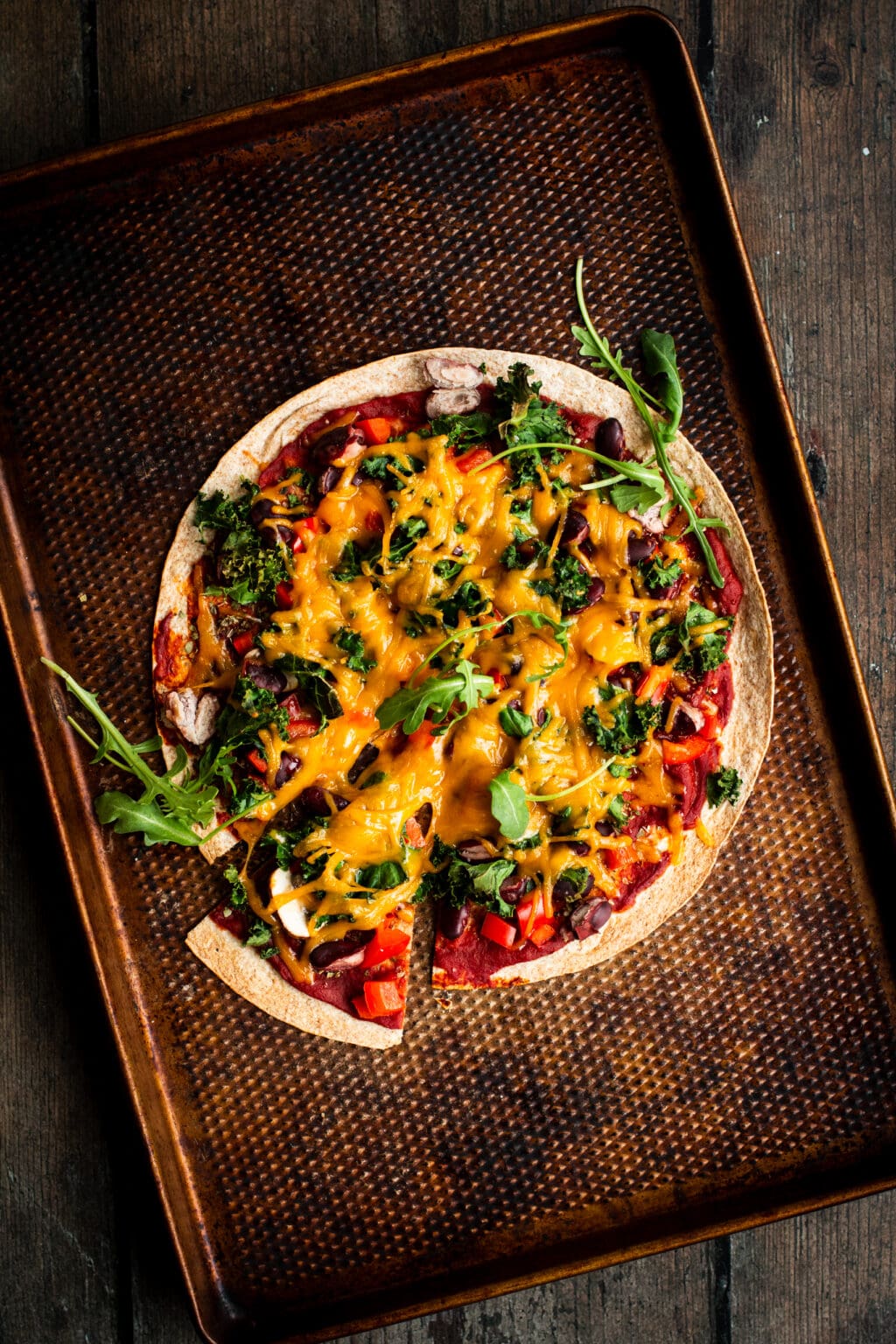

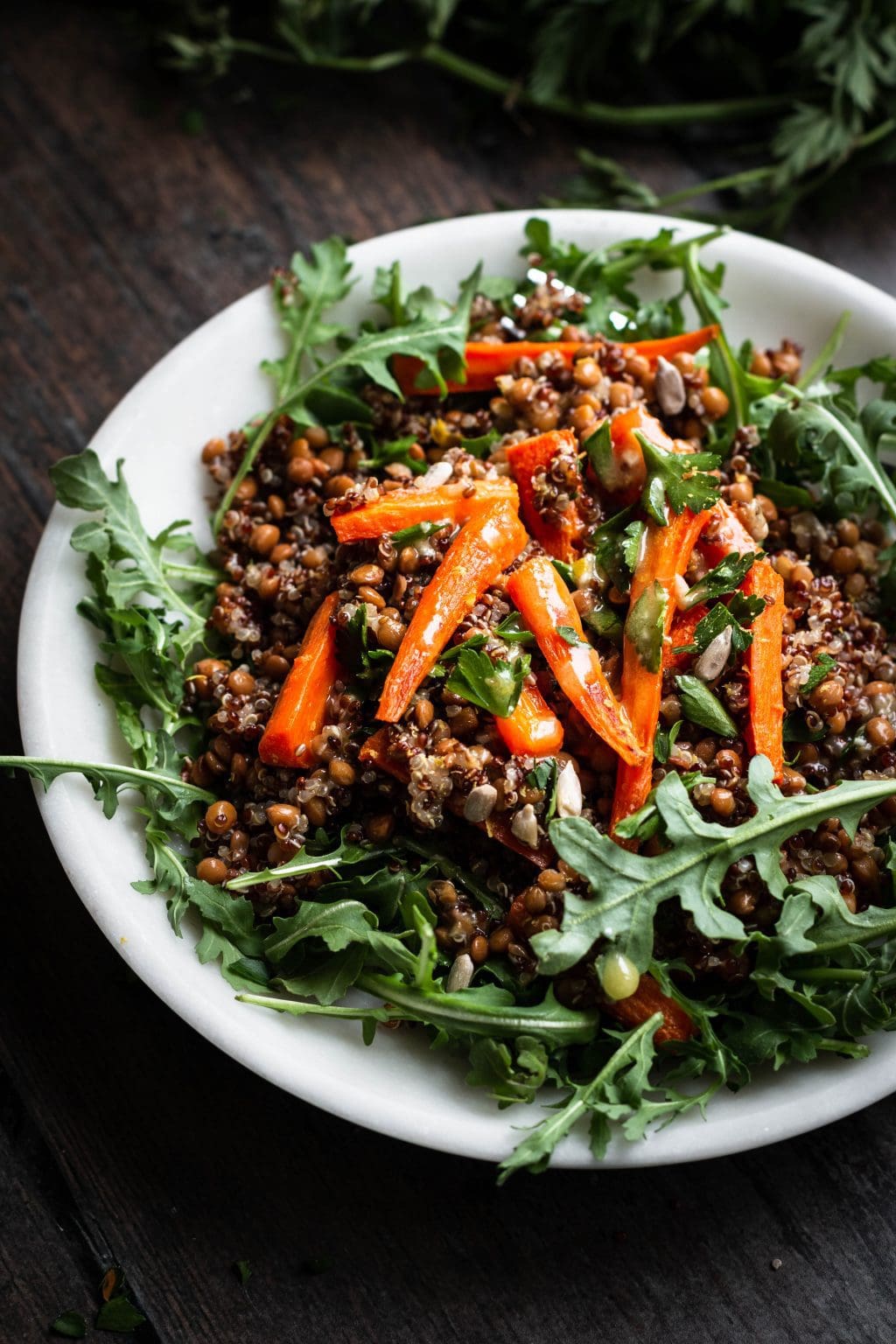
Leave a Reply